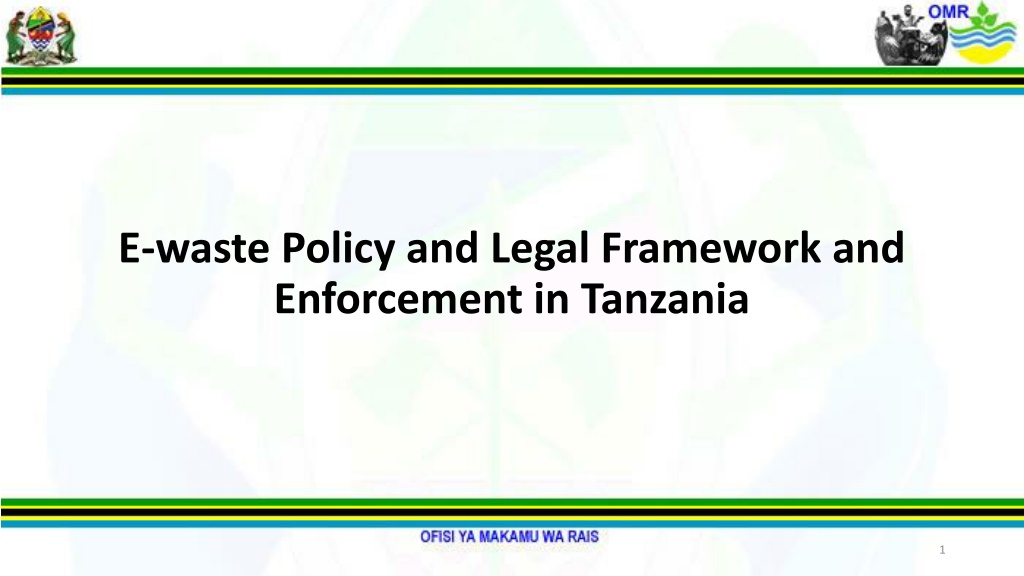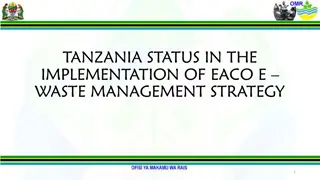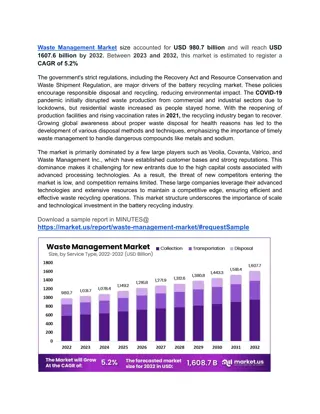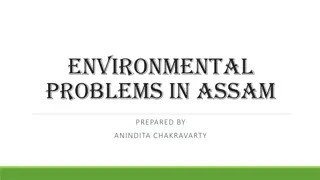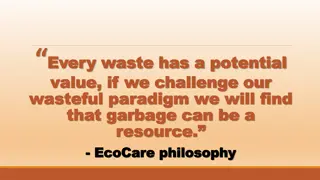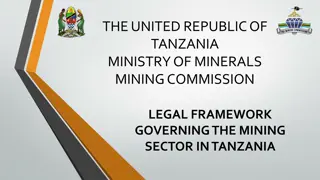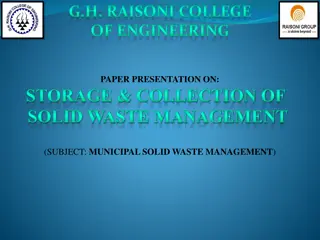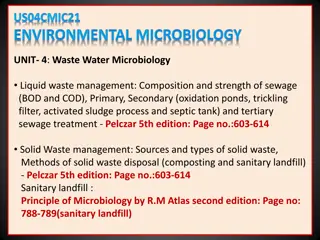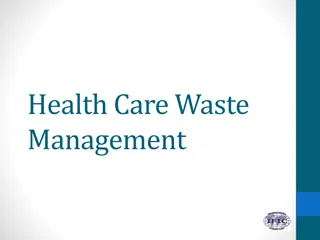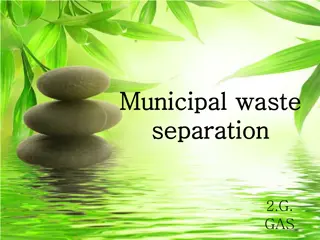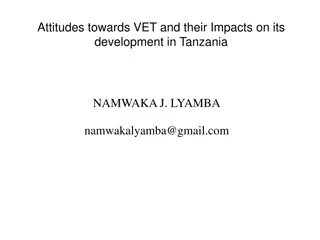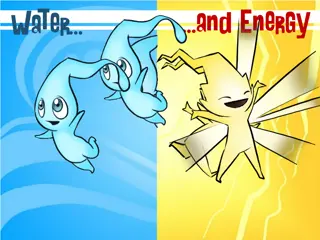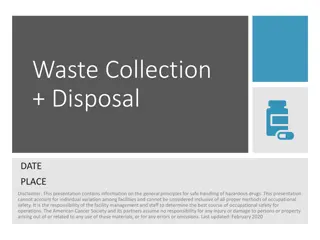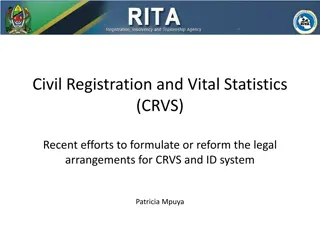E-Waste Policy and Legal Framework in Tanzania
Tanzania has established a comprehensive institutional and legal framework for the management of e-waste, including the National Environmental Policy and the Environmental Management Act. The regulations governing e-waste cover licensing, permitting, standards, fees, charges, environmental impact assessments, and audits. Tanzania is also a party to international agreements such as the Basel Convention, recognizing e-waste as hazardous waste. The country's efforts aim to address the growing environmental threat posed by e-waste generation.
Download Presentation

Please find below an Image/Link to download the presentation.
The content on the website is provided AS IS for your information and personal use only. It may not be sold, licensed, or shared on other websites without obtaining consent from the author. Download presentation by click this link. If you encounter any issues during the download, it is possible that the publisher has removed the file from their server.
E N D
Presentation Transcript
E-waste Policy and Legal Framework and Enforcement in Tanzania 1
Why regulate E Why regulate E- -waste? waste? Its valuable resources that can be recovered The dangers built within Significant growth in e-waste generation State of Environment Report 2019 highlighted that e-waste is an emerging environmental threat 2
Institutional and legal Framework Institutional and legal Framework on e on e- -waste management in waste management in Tanzania Tanzania National Environmental Policy 2021 national framework for planning and sustainable management of the environment in a coordinated, holistic and adaptive approach taking into consideration the prevailing and emerging environmental challenges including e-waste. Environmental Management Act, 2004 The Act provides an administration and institutional arrangement for environmental management issues. It also describes roles, responsibilities and the functions of key players in protecting the environment for national interest Environmental Management Act 2004 sets up the institutional framework for environmental management in the country 3
The e-waste is regulated through The Environmental Management (Control and Management of Electrical and Electronic Equipment Waste) of 2021 The Regulations provides for licensing and permitting of e-waste dealers in the country. The existing dealers include producers, importers, collectors, recyclers and storage. 4
The Electronic and Postal Communication (Electronic Communication Equipment Standards and E-waste Management) Regulations, 2020 EM (Fees and Charges) Regulations, 2021 The Environmental Impact Assessment and Audit regulations, 2005 The regulations require all projects related to e-waste recycling, refurbishing, and dismantling be subjected to full Environmental Impact Assessment. Equally, the regulations require companies and e-waste processing plants to conduct an annual compliance audit. 5
Tanzania is a party to several Multilateral Environmental Agreements related to e-waste management. Some of the MEAs include Basel Convention on control of Transboundary Movement of hazardous waste, Bamako Convention on the ban of import into Africa certain hazardous waste and their disposal. E-waste is recognized as hazardous waste under the Basel Convention definitions. 6
Key stakeholders in Managing e Key stakeholders in Managing e - - waste waste The Vice President s Office (VPO) provides an overall policy coordination and oversight of all environmental matters including waste management in the country. Developing policies and legislations for handling hazardous waste. Reviewing the quotation with the view of assessing the capacity of the dealers and providing permit for collection, transporting and storing of e-waste if satisfied by the capacity of the dealers 7
The National Environment Management Council (NEMC) NEMC is responsible for enforcing environmental quality standards for the management of hazardous waste. Local Government Authorities (LGAs) / President s Office Regional Administration and Local Government (PORALG) LGAs monitor day to day e-waste activities done by e-waste dealer, Conducting an inventory and developing a database of electronic equipment and their waste. 8
ACHIEVEMENTS ACHIEVEMENTS Enforcement and compliance of existing regulations 30 e waste collectors 3 e waste facility (Chilambo General Trade, New Tabosh & Fuqiang Companies) Higher Education institutions have included e-waste management in their curriculums (UDSM, UDOM, DIT). 9
CHALLENGES CHALLENGES Low number of e - waste dealers compared to the waste load More awareness of e - waste is needed Inadequate infrastructures for e-waste management (sorting to disposal) 10
